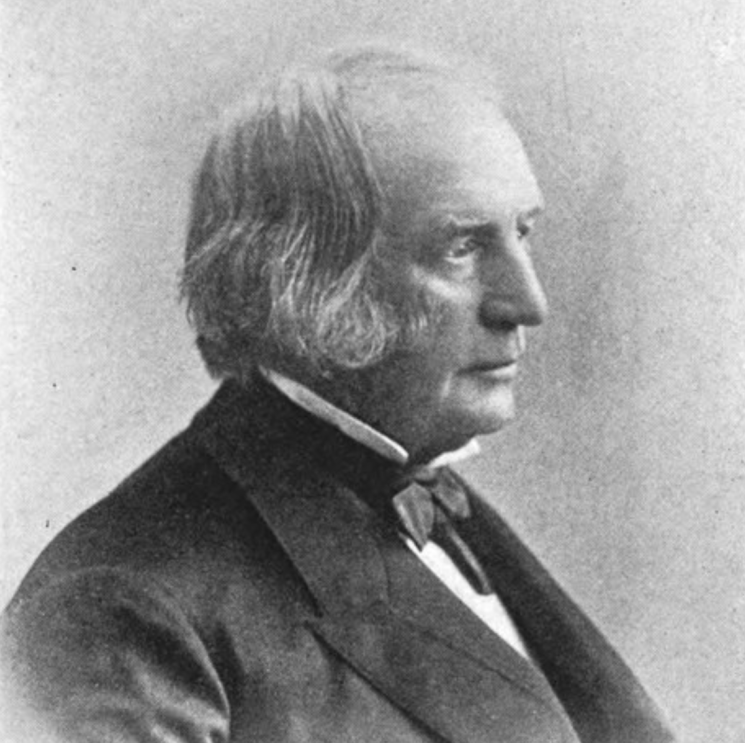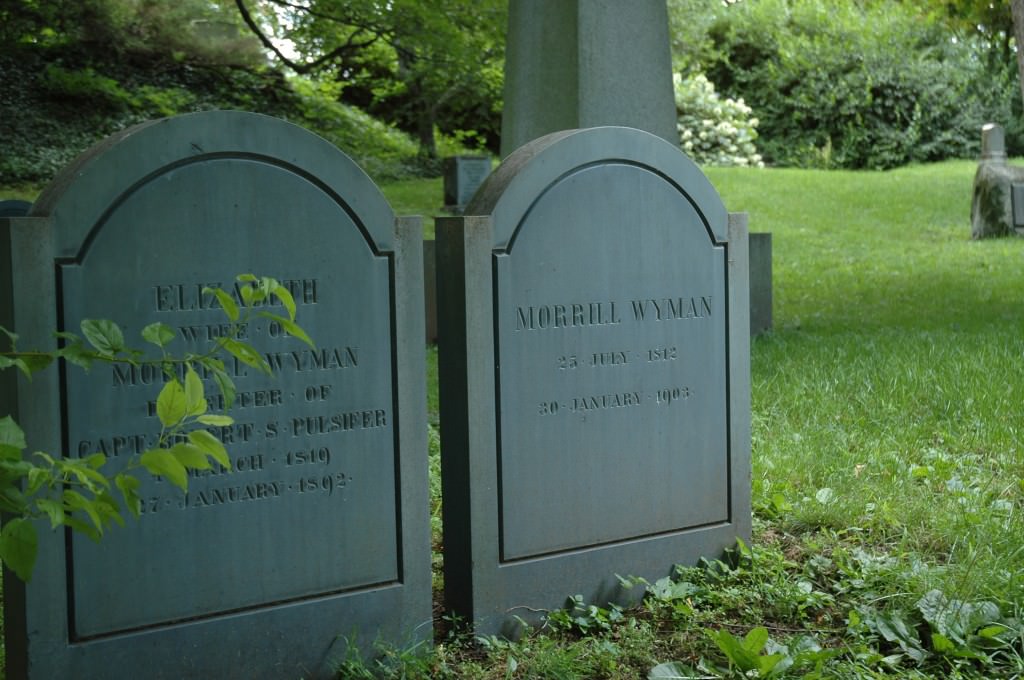Morrill Wyman (1812 – 1903)

Born in Chelmsford, MA, on July 25, 1812, to Dr. Rufus Wyman, first director of the McLean Asylum, and Elizabeth Morrill, Morrill Wyman was a well-known Cambridge physician and public figure.
Wyman attended the prestigious Phillips Exeter Academy with his brother, Jeffries, the first curator of the Peabody Museum of Ethnology at Harvard. The two graduated together from Harvard in 1833, at which point Morrill worked as an engineer on the Boston/Worcester railroad project. Unsatisfied with his work, he decided to train as a physician instead, and graduated from Harvard Medical School with his brother in 1837.
In the 1830s Wyman worked as a house physician at Mass General Hospital under Dr. Jacob Bigelow. He married Elizabeth Aspinwall Pulsifer, daughter of Boston shipmaster Captain Robert Starkey Pulsifer, in 1839; the couple had four children. Over the next several years he expressed interest in systems of ventilation, and received the Boylston Medical Prize for a paper on the topic in 1846.
The following year Wyman and his brother, Jeffries, were pulled into the great media sensation of the Parkman-Webster murder case. John Webster, a Harvard professor sentenced for the murder of Dr. George Parkman, attended a dinner party at which Wyman was a guest on the night of the murder. Jeffries was called to the stand to verify the bones believed to belong to Parkman.
Wyman made significant contributions to the medical field with his innovative method for relieving the body of fluids, which assisted patients suffering from pleurisy (inflammation of the lining of the lungs). The standard procedure was often fatal; improving upon this method to make it effective and almost painless, Wyman allowed his patients rapid recovery. A humble physician, Wyman developed the method to alleviate the burden of his patients, not to promote himself in the medical community – though that was certainly a positive consequence of the advance.
In 1853 Wyman relieved Dr. John Ware as Adjunct Hersey Professor of Medicine at Harvard College. He worked on behalf of the Union in the Civil War, serving on the U.S. Sanitary Commission in 1862. In addition to surveying the condition of war hospitals, Wyman also served on the Home Guard.
A devoted scholar, Wyman always read the latest medical texts and eventually donated his vast collection of books to the Boston Medical Library (which later incorporated with Harvard to create the Countway Library). Wyman’s lifelong struggles with hay fever resulted in his landmark text, Autumnal Catarrh (1872), on the condition. During his seasonal bouts with the affliction, he would camp along the Peabody River in the White Mountains to restore his health and verve.
In the 1860s, Wyman made a brief foray into social reform. After reading about the whipping of a young girl in the public school system, he felt compelled to work to reform corporal punishment in schools, and served on a school committee. Though he was unable to pass legislation, he did encourage public awareness of the treatment and abuse of public school students. Massachusetts banned physical punishment in public schools nearly a century later.
Though he tried to retire from public medicine at the age of 74, the devoted doctor ended up making housecalls to his most loyal patients until the age of 85. In the weeks leading up to his death at age 90, he was still toiling away with the ventilation systems in Cambridge Hospital (now Mount Auburn Hospital), where he had once served as President. Three weeks prior to Wyman’s death, he had asked his son to accompany him on a cruise abroad. They planned the trip and selected their staterooms on a map, left marked on Wyman’s desk at the time of his death.
Wyman is buried in a family lot, beside his wife, at Lot #133, Willow Avenue.
Sources:
Portrait of Morrill Wyman (top): Unknown photographer, Public domain, via Wikimedia Commons
Sullivan, Robert. The Disappearance of Dr. Parkman. Boston: Little, Brown, 1971.
Wyman, Morrill. A brief record of the lives and writings of Dr. Rufus Wyman and his son Dr. Morrill Wyman. Cambridge: The Riverside Press, 1913

Leave a Reply